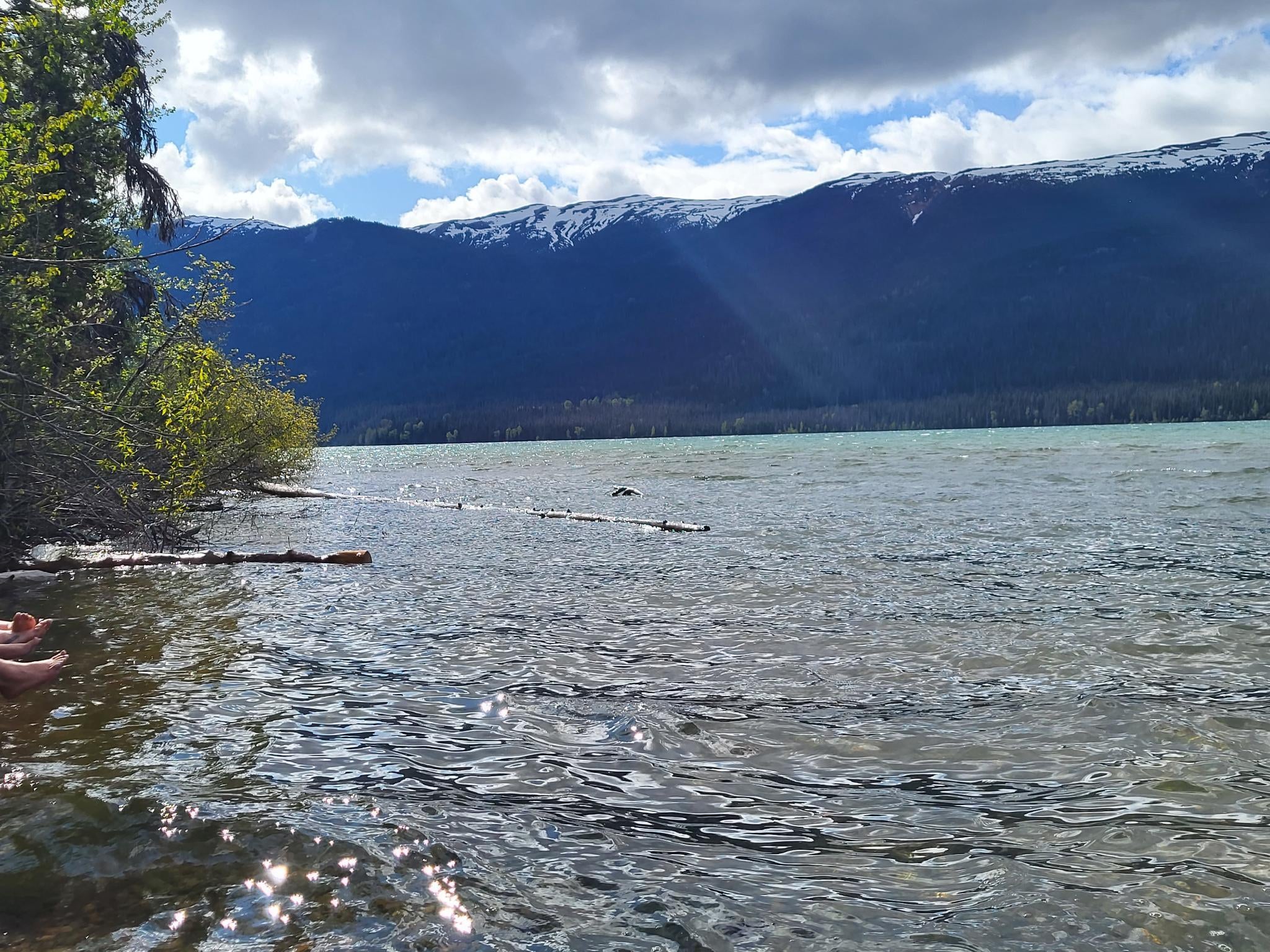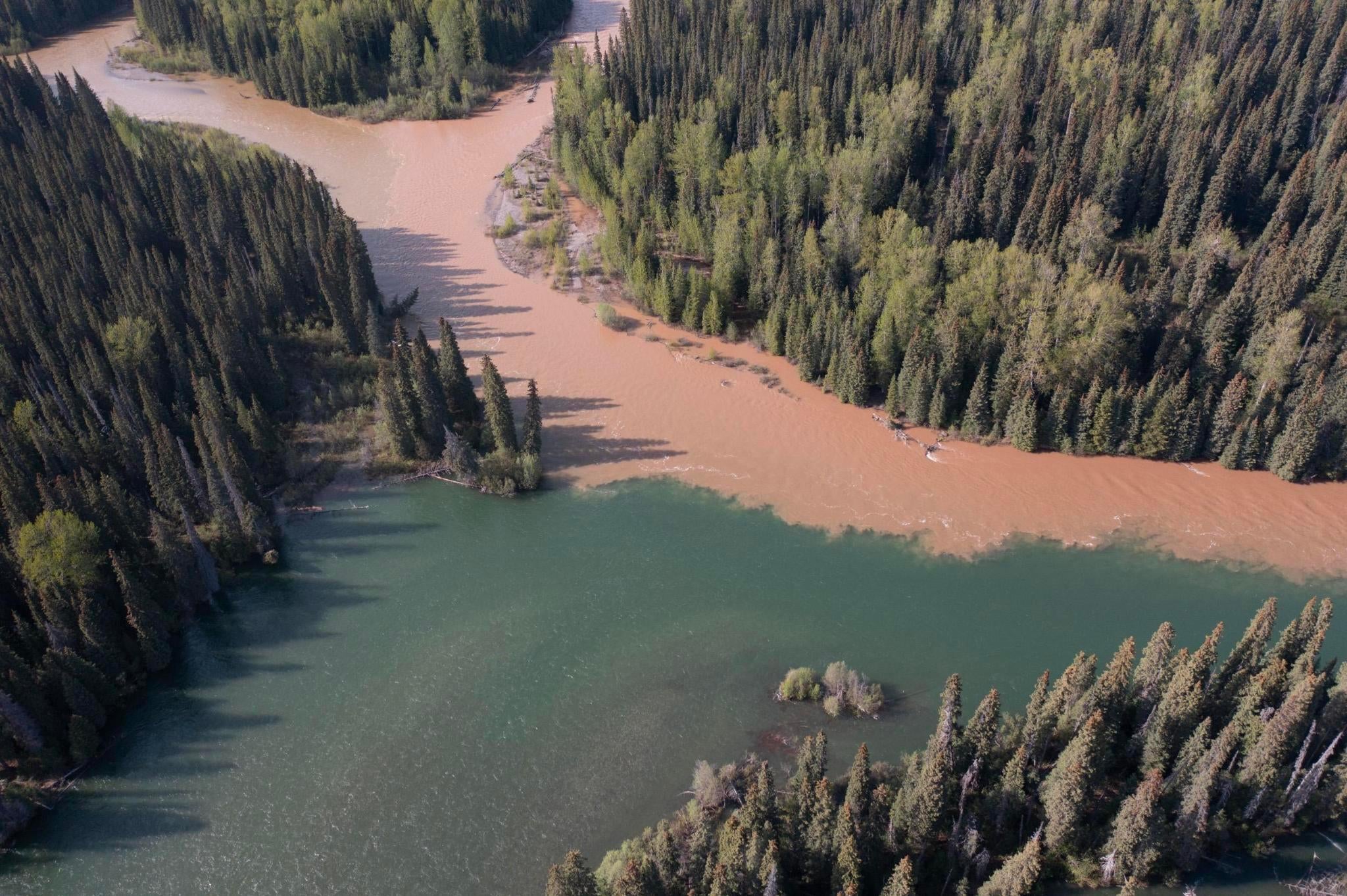In December 2019, the British Columbia Supreme Court issued an injunction allowing construction of a 669-kilometer-long Coastal GasLink pipeline that will cut through 22,000 square kilometers of unceded Wet´suwet´en land. The injunction gave the Coastal GasLink pipeline unlimited access to the ancestral lands of the Wet´suwet´en, and was firmly rejected by the Wet´suwet´en people. On January 7, 2020, the Wet´suwet´en Hereditary Chiefs served Coastal GasLink with an eviction notice, effective immediately.
Despite the Hereditary Chiefs’ opposition to the pipeline, the Wet´suwet´en elected band council—a form of Indigenous governance established by the Canadian government— signed an agreement to allow the pipeline to go forward. In an effort to protect ancestral lands and prevent the construction of the pipeline, community members have established encampments like the Unist’ot’en Camp, which was founded to re-establish traditional Indigenous governance systems and enact a Free,
Prior and Informed Consent protocol for all activities on Unist’ot’en land. These encampments have consistently been targets of violence and intimidation by the Royal Canadian Mounted Police (RCMP) and Community-Industry Response Group (C-IRG). Gidimt’en Clan member Sleydo’ has been arrested at gunpoint twice while defending her home-lands and the Wedzin Kwa River from the Coastal GasLink pipeline project. She is a wife and mother of three young children.
Cultural Survival recently spoke with Sleydo’, who is the Supporting Chief in the Cas Yikh House of the Gidimt’en clan of the Wet´suwet´en Nation.
Cultural Survival: The RCMP raids have been ongoing since 2018. Can you please give an overview of this conflict and your decision to put your lives on the line for this many years?
Sleydo’: We have experienced three full-scale militarized raids on our territory in as many years, and the harassment and intimidation by Community-Industry Response Group and private security has been ongoing and increasing in intensity again. Wet’suwet’en have our own body of laws that govern our people and yintah (lands), and we continue to uphold those laws so that our future generations have access to healthy lands and a healthy governance system despite the repression we face. Our ancestors have faced worse so that we would have what we have.
CS: How are things looking on the ground right now? When was the last time there was a clash with the RCMP?
Sleydo’: Gidimt’en checkpoint continues to be occupied and infrastructure continues to be built despite ongoing and intense harassment and intimidation by police and private industry. We are nearing completion of the first feast hall built on our territories in generations. There continue to be arbitrary arrests made by C-IRG officers, many of those pending crown approval and initial court dates.
In March 2023 there was a small-scale raid at the checkpoint where five people were arrested for alleged obstruction and have yet to have a first court appearance. Coastal GasLink continues work under constant police protection. CS: What is it like to constantly live in conflict with the Canadian State? Sleydo’: I think all Indigenous Peoples live in conflict with the State in some way or another and have become accustomed to it. Our experiences on the ground are very direct and blatantly racist. As Indigenous people we experience this repression on a very visceral level because of our history of genocide by the state.
To endure the ongoing harassment and surveillance on a daily basis is a lot for our nervous systems. It’s part of their plan to remove us from our territories. However, what they didn’t plan for was the deeply rooted spirit of resistance that we also inherited from our ancestors. We will always remain on our lands, and the future generations will learn from our experiences and grow stronger. CS: Has this conflict exacerbated other safety and Tribal sovereignty issues or concerns? Sleydo’: This conflict highlights the inherent repression of Indigenous title to our lands and our ability to exercise our inherent rights and responsibilities to our people and lands. We are simply existing according to our laws and we will always be criminalized and harassed for it until the land issue is resolved.
The violence to our lands goes hand in hand with the violence against our women. If this issue was important to so-called Canada, nobody would be standing by while Indigenous women are stalked and harassed by police and ex-police in remote areas on our own lands.

Photo courtesy of Sleydo'.
CS: Indigenous land defenders face criminalization on a regular basis. What are some recent examples of this in your community?
Sleydo’: Our chiefs, matriarchs, and youth are currently facing jail time for allegedly breaching a racist injunction and have been living with bail conditions severely impacting our ability to access our territories since 2021. We have yet to resolve these charges and continually experience arbitrary arrests on the yintah on a regular basis.
The most recent raid was in March of 2023, and Indigenous women and youth are still waiting for charges to be approved by the crown. Every day we are on our lands we face criminalization by the State.
CS: What elements of your land and territory hold the most meaning and value to you and your community? What gives you the most joy?
Sleydo’: The wedzinkwa, our sacred headwaters, is sacred to us because we know she gives life to the whole territory.
We are salmon people and our salmon rely on the health and wellness of our waters and their habitat. We also know that we have a responsibility to ensure the future for all our neighbors downstream in our watershed that rely on those salmon spawning. The thing that brings me the most joy is harvesting with my children and family on the yintah. This is what brings us together as people and connects us to our yintah. We understand it better, we understand ourselves and our place in it better.

Photo courtesy of Sleydo'.
CS: When you think about protecting and caretaking your land, what kind of strategies have you found to be the most effective?
Sleydo’: I believe that occupying our lands both with infrastructure and people are what we need to do to protect them and thrive as Indigenous people. We are the strongest when we are living our way of life and connected to the natural world. It helps heal the traumas of colonization and creates a stronger relationship with the land and our ancestors.
CS: What are your hopes on resolving this conflict?
Sleydo’: I don’t believe that this conflict will be resolved by the State or Coastal GasLink. This conflict will flow into other relationships with industry and government unless our ‘No’ is respected. CS: Going forward, how can Indigenous Peoples be supported to care for, protect, and steward their lands and local ecosystems? Sleydo’: Indigenous people can be supported by promoting our voices and supporting the capacity of our communities to engage in decision-making and reoccupy land.
We have been fortunate to receive monetary support to build on our territories, but we’ve also had many people come and physically support us on the ground. This is an intergenerational struggle, and we need support even when—especially when—there’s not a big conflict or raid happening. Right now we are fundraising for legal defense funds to cover the upcoming trials of Indigenous land defenders facing jail time from arrests over the last three years on our yintah.
Top photo by Brandi Morin.
